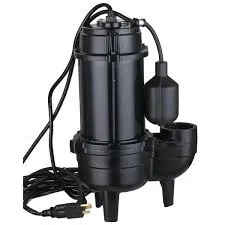TEL:
+86 13120555503
Telugu
- Afrikaans
- Albanian
- Amharic
- Arabic
- Armenian
- Azerbaijani
- Basque
- Belarusian
- Bengali
- Bosnian
- Bulgarian
- Catalan
- Cebuano
- Corsican
- Croatian
- Czech
- Danish
- Dutch
- English
- Esperanto
- Estonian
- Finnish
- French
- Frisian
- Galician
- Georgian
- German
- Greek
- Gujarati
- Haitian Creole
- hausa
- hawaiian
- Hebrew
- Hindi
- Miao
- Hungarian
- Icelandic
- igbo
- Indonesian
- irish
- Italian
- Japanese
- Javanese
- Kannada
- kazakh
- Khmer
- Rwandese
- Korean
- Kurdish
- Kyrgyz
- Lao
- Latin
- Latvian
- Lithuanian
- Luxembourgish
- Macedonian
- Malgashi
- Malay
- Malayalam
- Maltese
- Maori
- Marathi
- Mongolian
- Myanmar
- Nepali
- Norwegian
- Norwegian
- Occitan
- Pashto
- Persian
- Polish
- Portuguese
- Punjabi
- Romanian
- Russian
- Samoan
- Scottish Gaelic
- Serbian
- Sesotho
- Shona
- Sindhi
- Sinhala
- Slovak
- Slovenian
- Somali
- Spanish
- Sundanese
- Swahili
- Swedish
- Tagalog
- Tajik
- Tamil
- Tatar
- Telugu
- Thai
- Turkish
- Turkmen
- Ukrainian
- Urdu
- Uighur
- Uzbek
- Vietnamese
- Welsh
- Bantu
- Yiddish
- Yoruba
- Zulu
Telephone: +86 13120555503
Email: frank@cypump.com
ఫిబ్ర . 01, 2025 05:31 Back to list
Vertical Slurry Pumps
In the world of modern agriculture and waste management, the slurry tanker hydraulic pump stands out as an essential piece of equipment. Its pivotal role in ensuring efficient slurry handling cannot be overstated. Here, we delve into the nuances of this equipment, combining real-world experiences, technical expertise, authoritative insights, and reliability to help you make informed decisions.
Authoritative voices in agricultural engineering underscore the importance of compatibility between the hydraulic pump and the tractor’s PTO (power take-off) system. Ensuring that the pump aligns with the available power supply prevents energy inefficiencies and mechanical strain. Innovations in hydraulic pump designs, such as variable displacement pumps, are revolutionizing this aspect by allowing operators to adjust flow rates without altering engine speed. Such advancements further solidify the pump’s role as a flexible and adaptable tool in modern agriculture. Trustworthiness in hydraulic pump performance comes from both reliable manufacturing and robust after-sale support. Brands with proven track records and comprehensive warranties are preferable, as they offer assurance of quality and reliability. Additionally, responsive customer support can greatly enhance user trust, aiding operators when troubleshooting or in need of technical advice. Agriculturists often share testimonials on how swift spare part availability and competent technical support can prevent disruptions in field activities. Integrating modern technology, such as IoT-based monitoring systems, offers another layer of trust by enabling real-time performance tracking. Operators can receive alerts on potential issues, scheduled maintenance, and efficiency benchmarks directly on their devices. This data-driven approach not only improves operational efficiency but also aids in sustainable practices by ensuring optimal utilization of resources. In summary, selecting a slurry tanker hydraulic pump demands consideration of flow characteristics, build quality, source proficiency, technological advancements, and reliable support. As agricultural practices continue to adopt eco-friendly methods, the hydraulic pump remains central to efficient and sustainable slurry management. By leveraging the collective experience and expertise available, operators can make educated decisions that enhance productivity and sustainability in agriculture.


Authoritative voices in agricultural engineering underscore the importance of compatibility between the hydraulic pump and the tractor’s PTO (power take-off) system. Ensuring that the pump aligns with the available power supply prevents energy inefficiencies and mechanical strain. Innovations in hydraulic pump designs, such as variable displacement pumps, are revolutionizing this aspect by allowing operators to adjust flow rates without altering engine speed. Such advancements further solidify the pump’s role as a flexible and adaptable tool in modern agriculture. Trustworthiness in hydraulic pump performance comes from both reliable manufacturing and robust after-sale support. Brands with proven track records and comprehensive warranties are preferable, as they offer assurance of quality and reliability. Additionally, responsive customer support can greatly enhance user trust, aiding operators when troubleshooting or in need of technical advice. Agriculturists often share testimonials on how swift spare part availability and competent technical support can prevent disruptions in field activities. Integrating modern technology, such as IoT-based monitoring systems, offers another layer of trust by enabling real-time performance tracking. Operators can receive alerts on potential issues, scheduled maintenance, and efficiency benchmarks directly on their devices. This data-driven approach not only improves operational efficiency but also aids in sustainable practices by ensuring optimal utilization of resources. In summary, selecting a slurry tanker hydraulic pump demands consideration of flow characteristics, build quality, source proficiency, technological advancements, and reliable support. As agricultural practices continue to adopt eco-friendly methods, the hydraulic pump remains central to efficient and sustainable slurry management. By leveraging the collective experience and expertise available, operators can make educated decisions that enhance productivity and sustainability in agriculture.
Share
Next:
Latest news
-
Reliable Non-Clog Sewage Pumps with GPT-4-Turbo Tech
NewsAug.04,2025
-
High-Performance Air Pumps for Sand & Gravel | Efficient Transport
NewsAug.03,2025
-
ISG Series Vertical Pipeline Pump - Chi Yuan Pumps Co., LTD.|Energy Efficiency, Corrosion Resistance
NewsAug.03,2025
-
ISG Series Pipeline Pump - Chi Yuan Pumps | Energy Efficiency&Compact Design
NewsAug.03,2025
-
ISG Series Vertical Pipeline Pump - Chi Yuan Pumps Co., LTD.|High Efficiency, Low Noise, Durable
NewsAug.02,2025
-
ISG Series Vertical Pipeline Pump - Chi Yuan Pumps | High Efficiency, Low Noise
NewsAug.02,2025










